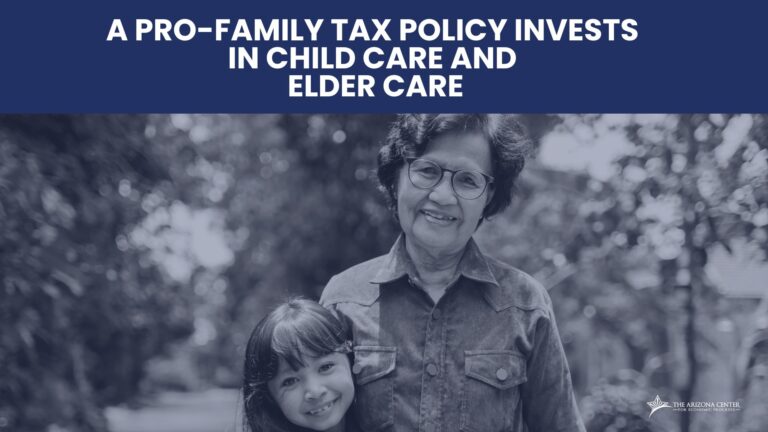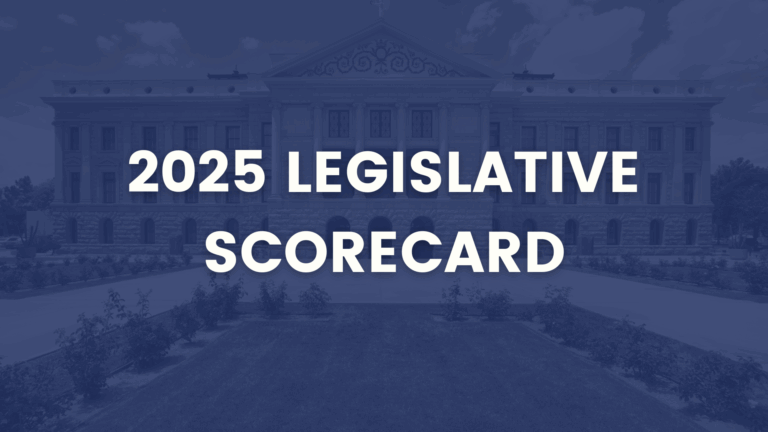
Movie Production Incentives instead of state investments
This session, the Arizona state legislature aims to pass legislation that would reintroduce tax credit incentives for the motion picture industry. Senate Bill 1708 would establish the Arizona Motion Picture Production Program that would provide refundable individual and corporate tax credits for motion picture production companies doing business within the state – costing Arizonan taxpayers $150 million annually.1
Refundable tax credit definition:
A refundable tax credit can be used to generate a tax refund larger than the amount of tax paid throughout the year. In other words, a refundable tax credit creates the possibility of a negative tax liability.
Motion picture production tax credits and incentive programs are not new to Arizona. The state legislature introduced this idea in the 1990s and more recently, again in 2005. These tax credits were intended to provide economic and tax incentives for production costs occurring within the state. However, the most recent program was short-lived and ended in merely five years due to the lack of return on investment.2
Senate Bill 1708 is essentially a repeat of a previously failed tax credit program for the filming industry in Arizona. The program would allow motion picture production companies to receive anywhere between 15 to 27.5 percent state tax deductions.3 Thus, the maximum tax credit percentage a company could be eligible for is 25% of their qualified production costs and 27.5% of certain resident labor costs. The impact of the creation of yet another tax credit program for the state would result in up to a loss of $150 million in state revenue annually.
Tax credits are a dollar-for-dollar reduction in tax liability and in most cases do not provide for a good return on investment. When looking back at Arizona’s most recent attempt to attract film companies to the state with tax incentives, a 2008 mid-program report by the Arizona Department of Commerce found that the film tax incentives were not generating indirect or direct revenue for the state, making the program financially unjustified.4 Additionally, Commerce found that the film industry generated only $2.3 million in the state’s economy compared to the $8.6 million taxpayers spent by giving tax credits to the film industry.5
While advocates of this bill argue that the creation of a film tax credit would foster new jobs, infrastructure, and an increase in tourism, these benefits are an estimate at best. Looking back at the highest number of taxpayers who made a claim in a single tax year, at most was only 11 were filed by production companies throughout the previous tax credit program’s existence and even less so for individual tax credit claims.
While currently 32 other states offer some form of a film tax credit, rebate or grant, Senate Bill 1708’s intended tax credit program is no better than most of the other film credit states and comes at a time when a growing number of states are eliminating or are allowing these tax credits to expire.6
Based on this data, lawmakers are setting Arizonans up to fail. Now more than ever, Arizonans need sound fiscal policy decisions that invest taxpayer dollars into all workers instead of narrowly focused industries that are not promising a return on investment.
1https://www.azleg.gov/legtext/55leg/2R/summary/S.1708APPROP_ASPASSEDCOW.pdf
2https://www.azsenate.gov/Committee_Program_Presentations/Motion%20Picture%20Tax%20Credit.pdf
3https://www.azleg.gov/legtext/55leg/2R/fiscal/SB1708.DOCX.pdf
4https://azmemory.azlibrary.gov/digital/collection/statepubs/id/40729/rec/1
5https://www.azmirror.com/2022/02/25/senate-approves-plan-for-150m-in-tax-credits-to-film-movies-in-arizona/



